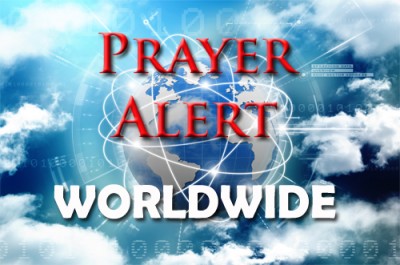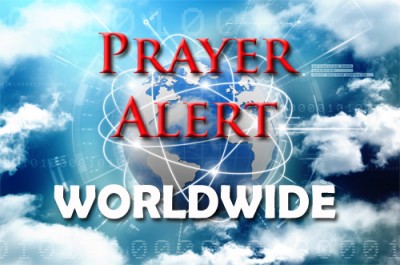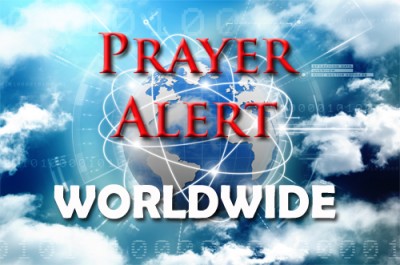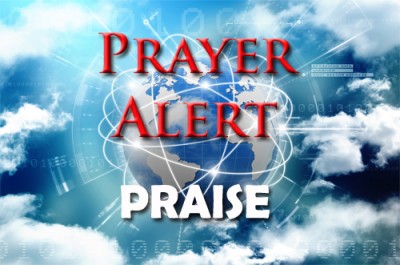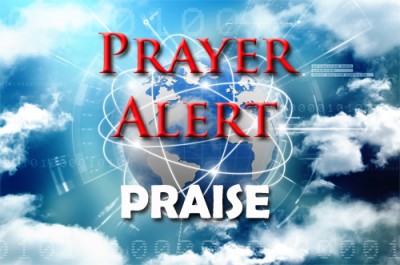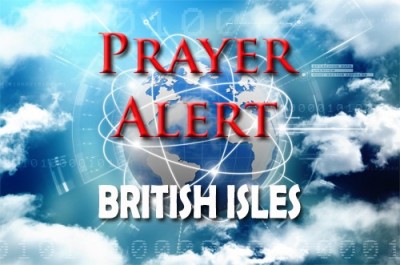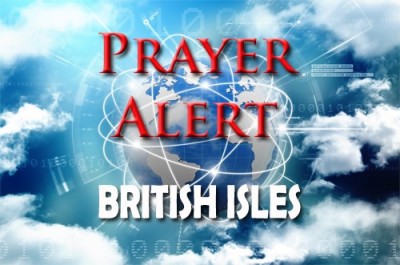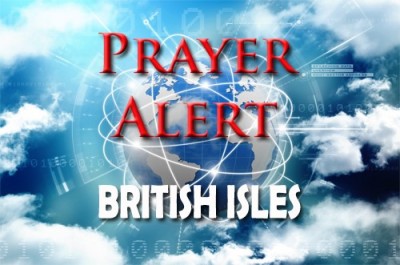Saudi Arabia / Yemen: prayer focus
23 Jan 2020The Lord has moved the hearts of workers in Saudi Arabia and Yemen to have a special prayer focus for the Khawlan people, a tribe with a unique Semitic language living in a region straddling the border between Yemen and Saudi Arabia. During a special prayer gathering in Saudi Arabia for the Khawlan Tribe in October, those present sensed that God was encouraging a call for the global church to join in a five day prayer focus for these unreached people. Would you join in? People can pray at any time, and there will be a special prayer focus for this people group from 14 to 18 February. Click the ‘More’ button for a five-day prayer guide translated into various languages, including English, plus a video.
Worldwide: inner city churches
23 Jan 2020A recent Lausanne Movement asked, ‘What can we do to accelerate the impact of Christianity in our cities?’ For the first time in history, there are more people in cities than in the countryside. 1.5 million people move into cities weekly. The church is not moving into cities as fast as the world. For the gospel to transform and flourish in cities, we need global alliances not just of Church leaders, but Christian leaders in the marketplace. Recently a UK news article reported the CofE planting churches in urban areas in a bid to renew itself. The article went on to tell the story of a young man who used drugs and alcohol. His chaotic lifestyle led to prison. Today he is sober, well dressed, studying business management and attending church on Tuesday evenings after he gave his life to the Lord. See also
USA: Trump impeachment trial
23 Jan 2020Democrat managers began their opening arguments on 22 January in an impeachment trial of President Trump, laying out their case as to why they think the President should be removed from office. Onlookers notice that House Democrats could not wait for the courts to decide on witnesses, as they said impeachment was urgent. Many now believe the senators are admitting their case is weak, so they are demanding more witnesses. The latest Politico / Morning Consult poll reveals that 47% are in favour of Trump's removal from office, with 45% opposed. President Trump's lawyers now have three days to make their case that the commander-in-chief did not commit a crime. But first up are Democrat prosecutors who get the same amount of time to prove that he did. The crux of their case is the allegation that Trump withheld military aid to pressure Ukraine to investigate former vice-president Joe Biden, a political rival, and his son Hunter Biden.
He thought he was a failure, but ...
16 Jan 2020In 1912, medical missionary Dr William Leslie went to live and minister to tribal people in a remote corner of the Congo. After 17 years he returned to the USA discouraged, believing he had failed to make an impact for Christ. He died nine years later. In 2010, a team from World Ministries made a shocking and sensational discovery. They found a network of reproducing churches hidden like glittering diamonds in the dense jungle across the Kwilu River from Vanga, where Dr Leslie had been stationed. Each village had its own gospel choir, although they wouldn’t call it that. They wrote their own songs and would have sing-offs from village to village. There were eight churches, scattered across 34 miles - even a 1,000-seat stone ‘cathedral’ in one village, which got so crowded that a church-planting movement began in the surrounding villages.
Love, not hate, the remedy
16 Jan 2020On 12 January Egypt’s president, Abdel Fattah al-Sisi, attended the Coptic Christmas service. Against a background of rising tensions in the Middle East, he held up the importance of tolerance and unity at a time when those tensions could spill over into conflict and violence - especially between religious groups. ‘If we love God, we must love each other,’ was his simple, powerful message. In 2019, at the opening of a new cathedral, he expressed his support for Christians, saying, ‘You are our family’. As Christians, we know that there is a model for this kind of love. For tense times and hard hearts, the Lord Jesus has already offered the perfect solution. Jesus’ greatest commands to us are to love God with all our heart and, out of this, to love our neighbour as ourselves. God, who is Love, wants us to love our neighbours who live alongside us - whether next door or across a distant border - with the same agape love He has for us.
Night rider: 21 years sleeping on a London bus
16 Jan 2020After his asylum application was rejected 21 years ago, Sunny began sleeping on London buses. His travel card holder quotes Jesus, ‘Peace I bequeath to you, my own peace I give you.’ He talks about his younger self, years ago, kneeling in prayer in a Nigerian prison, waiting to be executed. His offence - struggling for democracy. A guard lifts him to his feet and rushes him down corridors, out into blinding sunlight, where a car is waiting. Family and friends had bought his freedom and his flight to London. He took a course in documentary-making years ago, reporting on the lives of London's homeless, never imagining he would soon be in their shoes. Now a church minister buys him a monthly pass for bus fares and he volunteers at churches. He reads in the reference library, and is fed by generous restaurant managers at the end of the day.
Pray for the countryside
16 Jan 2020Bovine tuberculosis continues to devastate many herds of cattle, prompting deep divisions between different stakeholders as to the role of wildlife in spreading the disease. In the UK, in the 12 months up to September 2019, nearly 5.5% of registered herds were affected and 45,831 cattle were slaughtered, a 4.5% increase on the previous year. Pray for all affected, for government to be given wisdom in implementing effective control strategies and providing fair compensation, for reconciliation of different interest groups, and for ‘healing of the land’ (2 Chronicles 7:13-14). Also, in several issues last year we drew attention to the way the relative tranquility of Britain’s green and pleasant land, which is so appreciated by many townspeople, is being darkened by increasing crime, including domestic abuse, farm thefts and drug-dealing. Continue to pray for believers to shine as lights in the darkness. (Philippians 2:15)
Prayer for the royal family
16 Jan 2020Lord, we thank You for the life of Queen Elizabeth II, and celebrate her heart for You and her people, the wisdom, righteousness and integrity reflected in her life, and the respect she carries within this land. We decree that every change taking place at present will strengthen and support the monarchy, promoting and releasing a shift and moving forward in keeping with Your times and purposes. In this season of transition, we speak divine order into every aspect of the royal family. We release Your light into every place of confusion and misunderstanding, that wounds will be healed, relationships restored and solutions released. We speak life into every God-given purpose and call upon Prince Harry and the Duchess of Sussex, that every gift and skill will be used in alignment with God-given destiny. We agree that the power of Kingdom purpose will overwhelm any plans of the enemy.
(Suzanne Ferrett)
